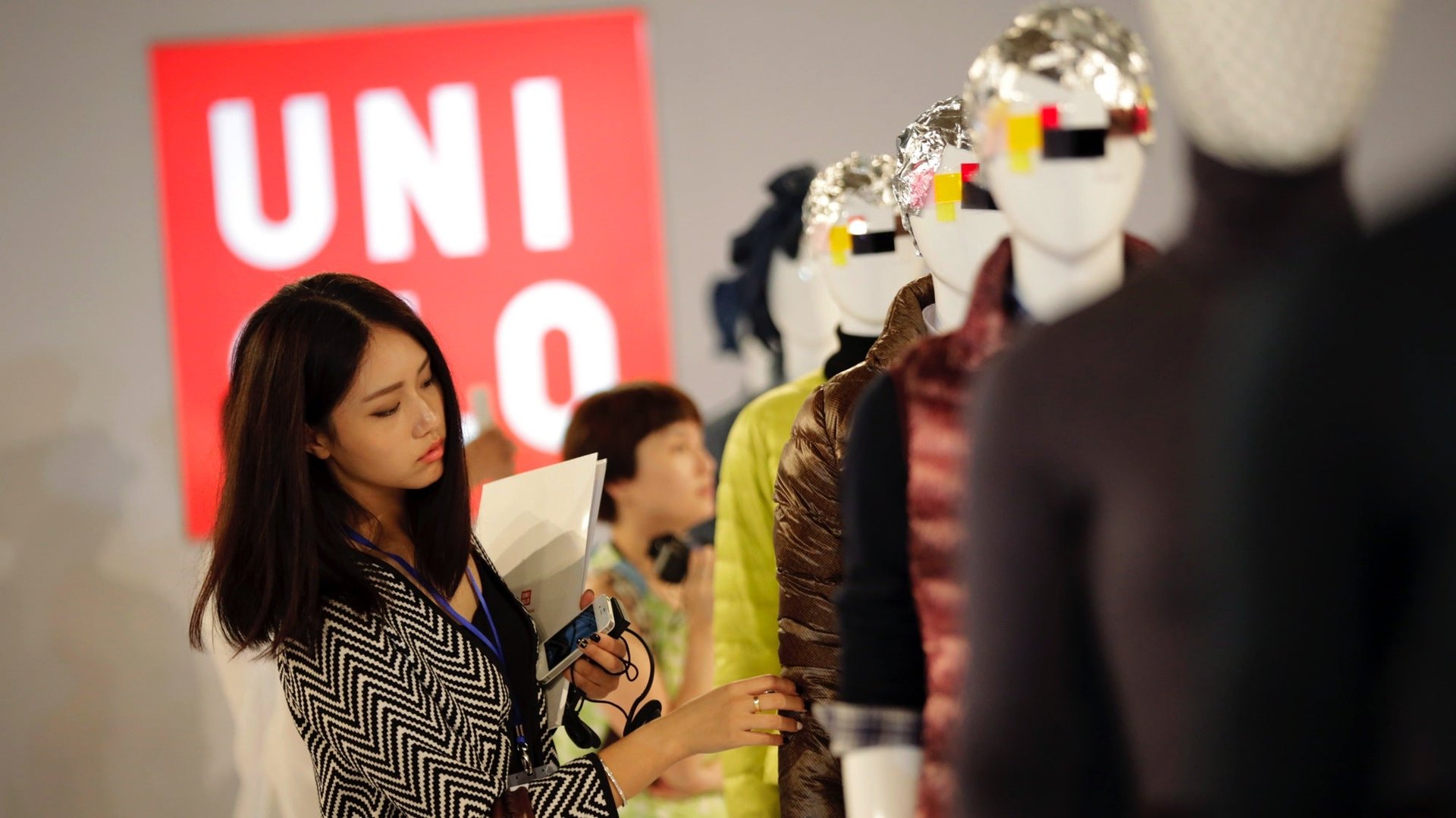Uniqlo says it will test out a four-day work week
Uniqlo workers, rejoice: Three-day weekends are coming.


Uniqlo workers, rejoice: Three-day weekends are coming.
Fast Retailing, the Japanese mega retailer that owns Uniqlo, Theory, and J Brand, is testing out a plan to offer 10,000 full-time employees in its Japanese stores the option of a four-day work week, Bloomberg reports.
But to get their long weekends, Uniqlo employees will have to put in 10-hour days during the rest of the week. And they’ll still have to work on Saturdays and Sundays—the retailer’s busiest shopping days. It’s unclear how the four-day work week would impact overtime hours or pay.
The move will initially impact a fifth of the fashion retailer’s workforce. If the test goes well, the company said it would consider introducing a shorter week at its corporate headquarters and across other countries.
The idea is that the perk will allow workers to spend more time with their families and take care of elderly parents—a big and growing problem in Japan, where many people (mostly women) leave the workforce to care for their aging loved ones.
And the company will have a better chance of holding on to their employees, reducing the high turnover rate and costs of retraining new workers, a common problem at most retailers.
A four-day or compressed work week is already offered to employees at 43% of US companies, according to the Society for Human Resource Management. While the perk is more likely to be found at smaller companies such as tech startups, global giants and government offices—the consultancy KPMG and the US Government Accountability Office among them—offer the option.
“[Workers’] satisfaction goes way up when they have control over their time,” Barbara Wankoff, KPMG’s director of workplace solutions, tells CNN.
Fast Retailing has been on a tear as the purveyor of fast fashion expands around the globe and shoppers flock to Uniqlo’s colorful, affordable basics.
The company has come under criticism for the low pay and poor conditions at the Chinese factories that churn out its low-cost clothing. Still, its sales have skyrocketed in recent years and are now poised to overtake those of the previous go-to source for everyday clothes, the Gap.
To keep growth up, Uniqlo is going to have to keep its workers happy—and the option of a four-day work week could certainly help. ”If people are happy, the retention rate is high,” Uniqlo USA Chief Executive Larry Meyer told Bloomberg in March.
And, he pointed out, there’s a “high cost of losing that talent.”